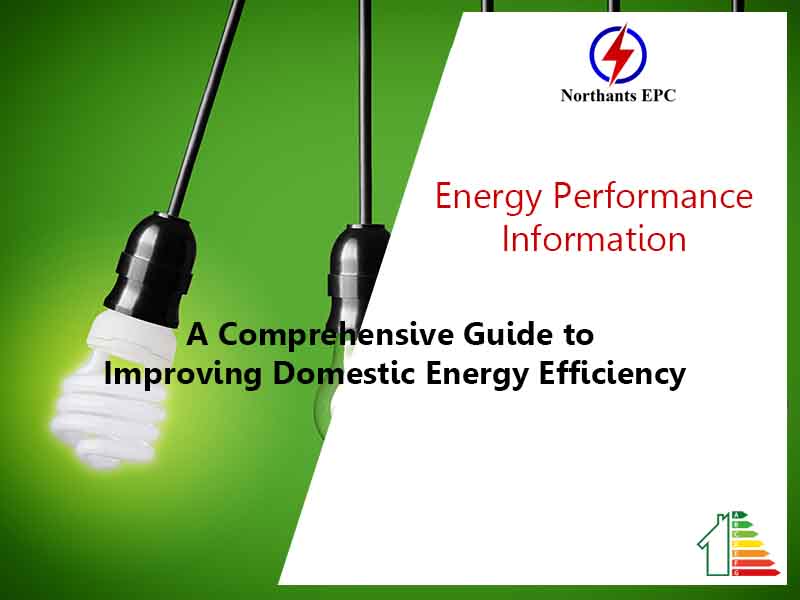A Comprehensive Guide to Improving Domestic Energy Efficiency
Introduction:
In today’s rapidly changing world, energy efficiency has become a paramount concern for homeowners. Not only does improving domestic energy efficiency help reduce utility bills, but it also contributes to the larger goal of mitigating climate change. Fortunately, there are numerous strategies and technologies available that can significantly enhance energy performance within our homes. In this article, we will explore a comprehensive guide to improving domestic energy efficiency, empowering homeowners to make informed decisions and create more sustainable living spaces.
1. Conducting an Energy Audit:
The first step towards improving domestic energy efficiency is to conduct a thorough energy audit of your home. This involves assessing the insulation, air sealing, and overall energy consumption patterns. By identifying areas of improvement, such as air leaks or inefficient appliances, homeowners can prioritize their efforts and allocate resources effectively.
2. Enhancing Insulation:
Proper insulation plays a crucial role in reducing energy waste and maintaining a comfortable indoor temperature. Start by insulating the attic, walls, floors, and pipes to minimize heat loss during the colder months and heat gain during the warmer months. Opt for eco-friendly insulation materials like cellulose, recycled denim, or sheep’s wool, which offer excellent thermal performance while being environmentally friendly.
3. Sealing Air Leaks:
Air leaks are a common source of energy loss in homes. Seal gaps and cracks around windows, doors, vents, and electrical outlets using weatherstripping and caulk. Consider adding door sweeps to prevent drafts under exterior doors. By eliminating air leaks, homeowners can reduce the workload on heating and cooling systems, resulting in substantial energy savings.
4. Upgrading to Energy-Efficient Appliances:
Older appliances tend to be less energy efficient compared to their modern counterparts. Consider upgrading to Energy Star certified appliances, which meet strict energy efficiency standards set by regulatory bodies. Look for energy-efficient refrigerators, washing machines, dishwashers, and HVAC systems, as they consume significantly less energy while providing the same or even better performance.
5. Utilizing Smart Home Technologies:
Integrating smart home technologies can revolutionize energy efficiency. Install programmable thermostats that can automatically adjust temperature settings based on your schedule, ensuring that energy is not wasted when you’re away. Smart lighting systems, occupancy sensors, and power strips can help manage electricity usage efficiently. Additionally, monitor and control energy consumption through smartphone apps or home energy management systems.
6. Renewable Energy Sources:
Harnessing renewable energy sources within your home is an excellent way to reduce reliance on traditional fossil fuels. Installing solar panels on rooftops allows homeowners to generate their own clean and sustainable electricity. This not only helps reduce energy bills but also contributes to a greener environment. In addition, small-scale wind turbines or geothermal heat pumps can be viable options depending on the location and specific requirements.
7. Energy-Efficient Windows and Doors:
Windows and doors are significant contributors to heat gain or loss in a home. Upgrading to energy-efficient windows with double or triple glazing and low-emissivity coatings can greatly improve insulation and reduce thermal transfer. Additionally, choosing energy-efficient doors with proper sealing features can prevent air leaks and enhance overall energy efficiency.
8. Efficient Water Heating:
Water heating accounts for a significant portion of energy consumption in most households. To improve efficiency, consider installing energy-efficient water heaters such as heat pump water heaters, solar water heaters, or tankless water heaters. These options reduce energy waste and provide hot water on-demand, avoiding standby energy losses.
9. Energy Monitoring Systems:
Monitoring and understanding your energy usage is essential for effective energy management. Energy monitoring systems provide real-time data on electricity consumption, allowing homeowners to identify high-energy areas and make adjustments accordingly. By tracking usage patterns, you can take proactive measures to reduce energy waste and optimize efficiency.
10. Behavioural Changes and Energy Conservation Habits:
Improving domestic energy efficiency goes beyond technology and upgrades—it also involves adopting sustainable habits. Simple behavioural changes, such as turning off lights when not in use, using natural light whenever possible, unplugging electronic devices when not in use, and using energy-efficient cooking methods, can have a significant impact on reducing energy consumption and promoting a greener lifestyle.
Conclusion:
Improving domestic energy efficiency is a multifaceted endeavour that encompasses various strategies, technologies, and behavioural changes. By conducting an energy audit, enhancing insulation, sealing air leaks, upgrading to energy-efficient appliances, and incorporating smart home technologies, homeowners can achieve substantial energy savings. Additionally, embracing advanced energy-saving technologies like renewable energy sources, energy-efficient windows and doors, efficient water heating systems, and energy monitoring can further enhance energy performance. Coupled with conscious behavioural changes, these efforts not only reduce utility bills but also contribute to a more sustainable and environmentally friendly future. Embrace the comprehensive guide to improving domestic energy efficiency, and take proactive steps towards creating an energy-efficient home that benefits both your wallet and the planet.
